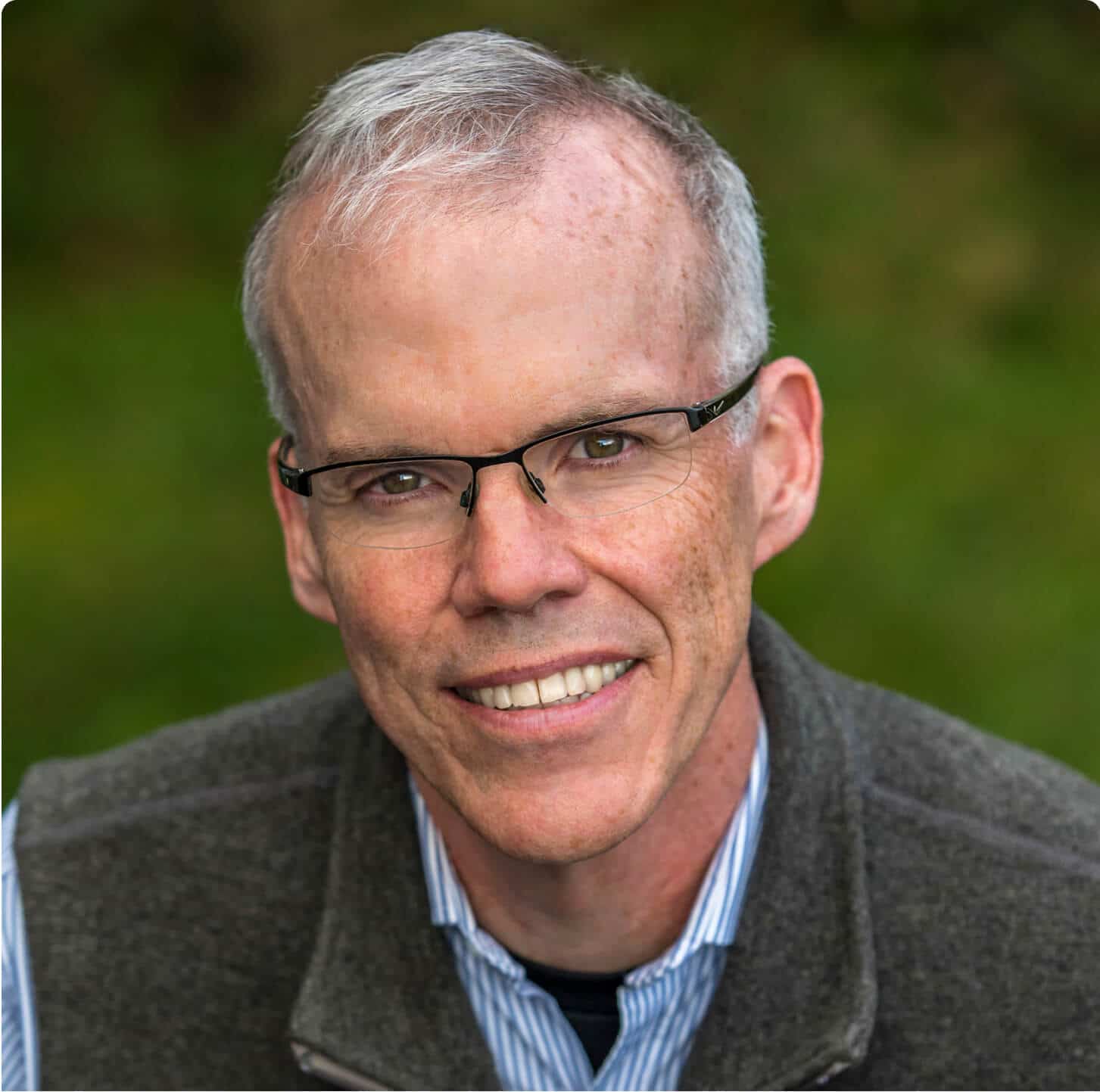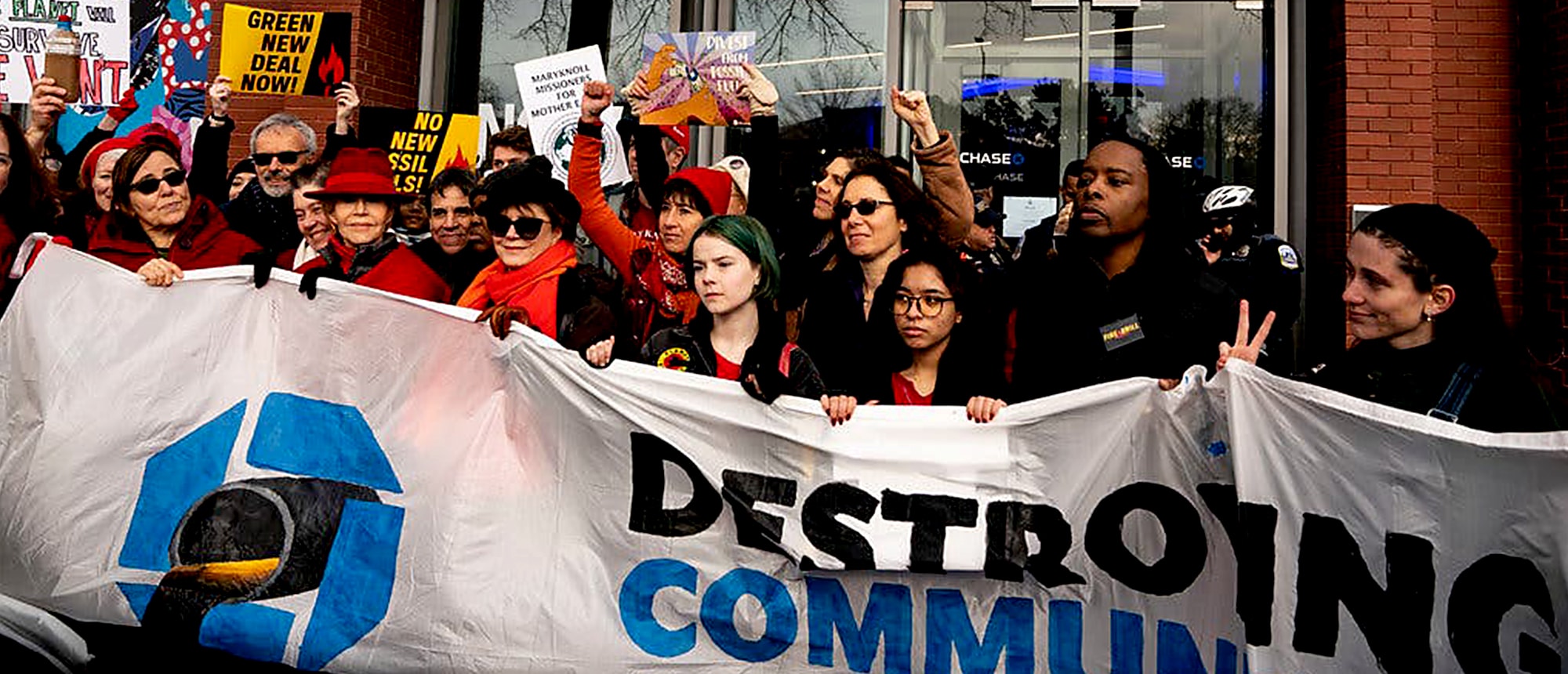Want To Do Something About Climate Change? Follow The Money
If you asked us why a dozen people sat on the floor next to the A.T.M. in a Chase Bank branch on Friday, waiting for the police to arrest us for this small act of civil disobedience, we would come up with the same answer as the famous robber Willie Sutton: “Because that’s where the money is.”
We don’t want to empty the vaults. Instead, we want people to understand that the money inside the vaults of banks like Chase is driving the climate crisis. Cutting off that flow of cash may be the single quickest step we can take to rein in the fossil fuel industry and slow the rapid warming of the earth.
JPMorgan Chase isn’t the only offender, but it is among the worst. In the last three years, according to data compiled in a recently released “fossil fuel finance report card” by a group of environmental organizations, JPMorgan Chase lent over $195 billion to gas and oil companies.
For comparison, Wells Fargo lent over $151 billion, Citibank lent over $129 billion and Bank of America lent over $106 billion. Since the Paris climate accord, which 195 countries agreed to in 2015, JPMorgan Chase has been the world’s largest investor in fossil fuels by a 29 percent margin.
This investment sends a message that’s as clear as President Trump’s shameful decision to pull America out of that pact: Short-term profits are more important than the long-term health of the planet.
There are few financial institutions untouched by these climate change-causing investments. Amalgamated Bank, Aspiration and Beneficial State Bank are notable exceptions. Local credit unions rarely have major investments in fossil fuels.
JPMorgan Chase, in contrast, has funded the very worst projects — projects that expand the reach of fossil fuel infrastructure and lock in our dependence on fossil fuels for decades to come.
In Minnesota, for example, the Line 3 pipeline replacement project, financed in part by JPMorgan Chase, adds 337 miles of crude-oil-carrying pipeline across Minnesota.
If approved this year, the pipeline will carry 760,000 barrels of crude oil every day from Canada to terminals on the edge of Lake Superior. This project reroutes and expands existing pipelines so that more crude oil can flow to refineries in Minnesota, Ohio, Illinois, Michigan and Ontario.
Tara Houska, a tribal attorney and member of the Couchiching First Nation Anishinaabe, has demonstrated the impacts on the ground. If built, the Line 3 replacement route will endanger the wild rice crops harvested for at least 500 years by the people native to the upper Midwest. Many Ojibwe nations in the region have opposed the project.
But it’s just as damaging if the oil doesn’t spill. Refined and burned as gasoline or jet fuel, it will spew carbon into the air, raising the temperature of the planet.
The victims of climate change are primarily people who have done little to cause the crisis. A World Health Organization senior scientist, Diarmid Campbell-Lendrum, said in December that climate change is emerging as “potentially the greatest risk to human health in the 21st century.” In the same month, Oxfam reported that cyclones, floods and fires are now displacing three times as many people as wars.
Not all the victims of climate change are humans. An estimated 800 million animals have been killed in the Australian blazes, which came after record heat and drought. Neither of us have met a long-nosed potoroo; the news that Australia’s bush fires have likely driven it and other species to extinction makes the world seem poorer.
There’s nothing abstract about climate change any more. Slowing the pace of climate change is humanity’s great task.
One center of power in our world is political — that’s why young people have been demonstrating outside of parliaments, writing a Green New Deal and registering new voters: in the United States, 2020 will be a fateful year for changing the politics of climate.
But even if the most environmental candidates win, it’s hard to imagine that they’ll be able to move our country at the pace science requires. The Intergovernmental Panel on Climate Change has said that if we want to limit global warming to 2.7 degrees Fahrenheit (1.5 degrees Celsius) above pre-industrial temperatures, we will have to halve greenhouse gas emissions by 2030, cutting them to net zero by around 2050 — and Washington is only one capitol.
It makes sense to go after the other center of power, too: the vast financial empire centered in our country. Insurance companies like Liberty Mutual and asset managers like BlackRock have also, through their investments in fossil fuels, enabled climate chaos.
These titans may be too big to pressure. Yet if we could get just one offending bank to move toward divesting from fossil fuels, the ripple effects would be both swift and global.
Imagine an announcement from JPMorgan Chase that it was immediately ending funding for new fossil fuel projects. It would echo around the world in hours, and there would be nothing the Trumps or Putins or Bolsonaros of the world could do to stop it.
We sat in and were arrested at Chase Bank on Friday for nothing smaller than the future of our planet. If you care about the climate, it’s worth moving your accounts away from these offenders. Cut up your credit cards.
If you want to stop climate change, follow the money.

